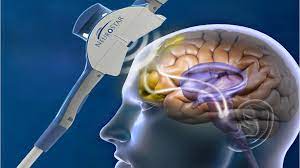Deep Transcranial Magnetic Stimulation (DTMS) has gained attention as a potential therapy for various mental health issues, including smoking cessation. In this article, we’ll explore the pros and cons of DTMS as explained by a leading psychiatrist in Delhi, Dr. Gorav Gupta. This insight from an experienced professional will help you make an informed decision if you’re considering DTMS as a smoking cessation option.
Pros of DTMS for Smoking Cessation:
- Non-Invasive: DTMS is a non-invasive procedure, which means it doesn’t require surgery or the insertion of any devices. This makes it a relatively safe option for individuals looking to quit smoking without resorting to more invasive methods.
- Minimal Side Effects: DTMS is generally associated with minimal side effects. Common side effects may include mild headaches or discomfort at the treatment site, but these are usually short-lived and well-tolerated.
- Targeted Brain Stimulation: DTMS specifically targets the brain regions associated with addiction. By modulating neural pathways, it can reduce cravings and make the process of quitting smoking more manageable.
- Complements Other Therapies: DTMS can be used alongside other smoking cessation therapies, such as counseling and medication, to enhance their effectiveness. Dr. Gorav Gupta’s expertise in integrating DTMS into comprehensive treatment plans is a significant advantage.
Cons of DTMS for Smoking Cessation:
- Limited Availability: DTMS may not be readily available in all locations. Individuals in Delhi can consult with professionals like Dr. Gorav Gupta who offer this therapy, but its accessibility may be limited in other regions.
- Cost Considerations: While DTMS can be an effective option, it can also be relatively costly, particularly when compared to traditional smoking cessation methods. However, the long-term health benefits should be weighed against the initial investment.
- Treatment Duration: DTMS typically requires multiple sessions over a few weeks to achieve noticeable results. Individuals should be prepared for the time commitment involved in the therapy.
- Individual Response: The effectiveness of DTMS can vary from person to person. While it has shown promise, it may not guarantee success in every case. A personalized approach, as provided by experts like Dr. Gorav Gupta, can help maximize its benefits.
Conclusion: Deep Transcranial Magnetic Stimulation (DTMS) is a promising therapy for smoking cessation, with both advantages and disadvantages. Consulting with a qualified psychiatrist in Delhi, such as Dr. Gorav Gupta, can help you determine if DTMS is the right choice for your specific needs and circumstances. It’s essential to weigh the pros and cons carefully and consider DTMS as part of a comprehensive approach to quitting smoking that may include counseling, medication, and behavioral interventions. Your mental health professional can guide you in making the best decision for your journey toward a smoke-free life.



